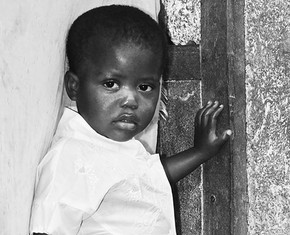The views expressed in our content reflect individual perspectives and do not represent the authoritative views of the Baha'i Faith.
While some see climate change as a complete falsehood, others see it as something that we simply can’t afford to ignore.
In our independent search for truth, dealing with something as complex as climate change, who and what are we supposed to believe? How can we find out what is right and what is wrong? Which is the best way forward for the planet as a whole, and not just for our individual sense of well-being or that of our immediate friends, family or fellow citizens?
In some parts of the world the climate change debate has become an extremely contentious issue, dividing people in both a very personal and a public way. This leads to strong passions which can easily submerge the facts and lead to outright disagreement. The issue of climate change has become politicized, and in some countries political parties have taken sharply divided positions.
Because it is such a complex issue, the facts are extremely important to understand—but our emotions can often get in the way and cloud our thinking. We need to practice a certain amount of detachment in order to discern the truth.
We don’t all have the same education, so there will often be gaps in our knowledge, and for some of us, scientific information can often be confusing and contentious. So let us try and take a sideways look at the situation.
The question of climate change was recently explored in a letter written by the Secretariat of the international administrative body of the Baha’i Faith, and the following extract contains some degree of clarification on the matter:
Scientific inquiry into the question of human contributions to global warming has gradually unfolded over a century … and more recently with intense scrutiny. While there will naturally be differences of view among individual scientists, there does exist at present a striking degree of agreement among experts in relevant fields about the cause and impact of climate change. Sound scientific results, obtained through the employment of sound scientific methods produce knowledge that can be acted upon; ultimately, the outcomes … must stand the test of further scientific inquiry. – Office of the Secretariat, The Universal House of Justice, 29 November 2017.
We are often reminded that actions speak louder than words. The question here is what actions should we be taking, and which words should we use when we discuss this important issue? The Baha’i approach to decision-making is firmly based on the principle of consultation—which attempts to generate complete unanimity, but says that if unanimity cannot be reached, the majority view should always prevail.
The present consensus worldwide appears to agree that humanity’s current actions are contributing heavily to climate change, even though they may not be the only factor involved. If this is true and is accepted by the majority, then surely the correct thing to do is to accept this majority view and to act accordingly.
Multiple studies published in peer-reviewed scientific journals show that 97 percent or more of actively publishing climate scientists agree: Climate-warming trends over the past century are extremely likely due to human activities. In addition, most of the leading scientific organizations worldwide have issued public statements endorsing this position. (https://climate.nasa.gov/scientific-consensus/)
If this is hard for some of us to accept, then we need to search out the facts for ourselves as dispassionately as possible in order to be fully convinced of the truth. Once again the Baha’i perspective can be of assistance:
Consultation provides a means by which common understanding can be reached and a collective course of action defined … an initial difference of opinion is the starting point for examining an issue in order to reach greater understanding and consensus ; it should not become a cause of rancor, aversion, or estrangement. By acting in unity, a conclusion about a particular course of action may be tested and revised as necessary through a process of learning. – Office of the Secretariat, the Universal House of Justice, 29 November 2017.
So in this respect, there is no difference between an act of faith and of scientific reason. If the “proof is in the pudding,” let’s hope it is a case of “many hands make light work” rather than “too many cooks spoil the broth”—the broth in this case being the air that we all breathe and the planet that we all share.
















Comments
Sign in or create an account
Continue with Googleor